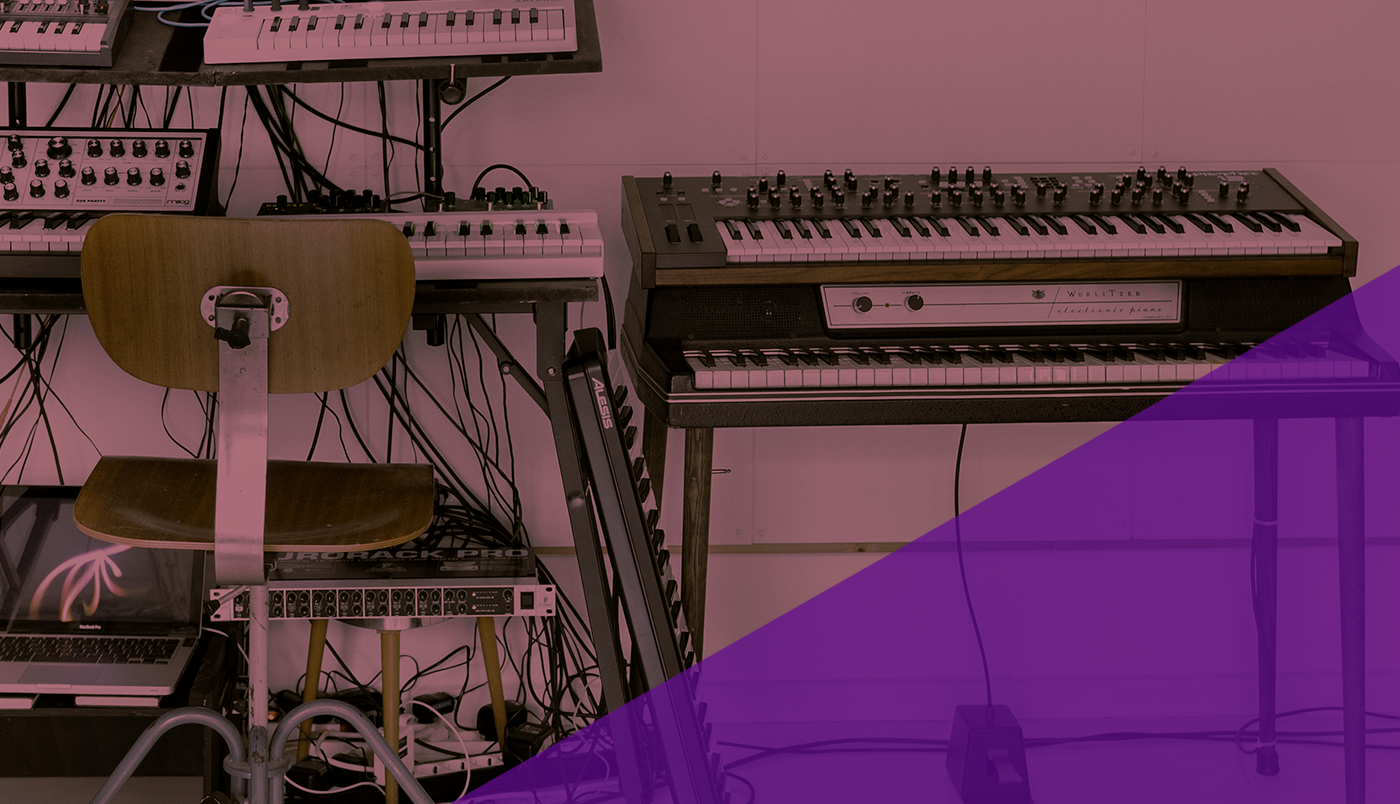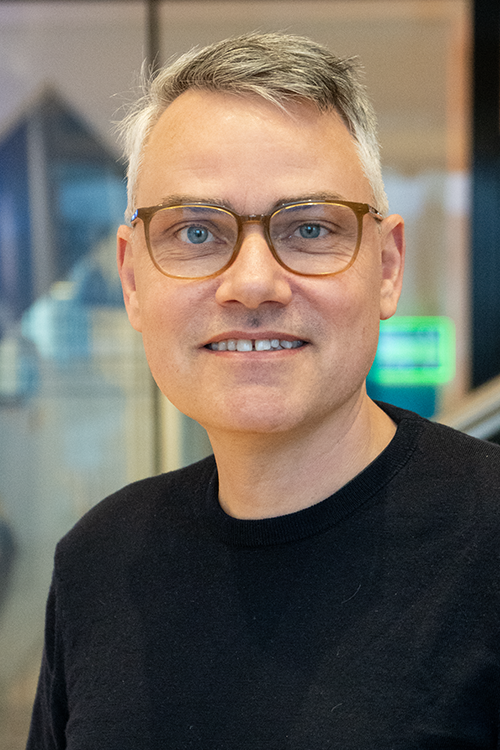
INSIDE Koda
‘AI will change the way we make music’
Part of Koda’s new strategy involves a greater focus on technology, to ensure the best possible working conditions for our members, in a world that is increasingly influenced and controlled by new technology and Big Tech companies. As an important part of Koda’s strengthening of the tech area, was bringing on board Nicolai Franck in the spring of 2023 in a newly created position as tech scout. But what does a tech scout actually do? We will let Nicolai explain:
‘Overall, my job is to keep tabs on technological developments and ensure that Koda is fully up-to-date on what is coming – and on what is going to make an actual difference. The main focus is, of course, how these new technologies will change the creation, distribution and use of music and thus the meaning of the agreements that Koda enters into on behalf of our members,’ he says and continues:
‘A keen understanding of technology is absolutely central to how Koda will navigate now and in the future. My job is therefore to help raise Koda’s level of knowledge regarding technological and digital developments and how they will affect us.’
“
For Koda, it is about navigating safely in a rapidly changing world where tech companies are changing the status quo.
Nicolai Franck
A rapidly changing world
Before Nicolai Franck joined Koda, he worked as a tech journalist for several years, but he also has a background in the music world as a musician and manager. Now, he combines his many years of insight into the tech world with a firm grasp of the music scene in his job as tech scout.
‘For Koda, the main issue is about navigating safely in a rapidly changing world where the ones changing the status quo are no longer music companies but tech companies. Seven of the world’s ten most valuable public companies are technology companies, and several of them are key players in the music industry. In light of this, it is important to understand the dynamics in the development of new technology and the underlying structures, pricing models and business strategies.’
AI looms large
There is plenty to look out for as a tech scout. In recent years blockchain, web3, NFTs, virtual reality and digital lenses have all been heralded as the next big thing in tech. However, one technology in particular has laid claim on most of Nicolai’s time at Koda so far: AI (artificial intelligence).

In the interview series INSIDE Koda, we give the floor to some of Koda’s experts – the ones who know the most about what is going on in the rights industry and what drives Koda’s business.
In this instalment, we hear from tech scout Nicolai Franck. He talks about how his work involves keeping abreast of technological developments so that Koda is always updated on how the latest developments will affect the business and Koda’s members. Having a firm grasp on the latest technology is absolutely central in governing how Koda will navigate now and in the future.
Since ChatGPT was launched in November 2022, the whole world has become aware of the far-reaching changes artificial intelligence will bring. According to Nicolai, AI heralds significant changes that can perhaps best be compared to the spread of the Internet and to the arrival of the smartphone, which merged phones and computers into a pocket-sized device. And those changes will also affect the music industry.
‘AI – and especially generative AI – is a game changer that will change how we make music. There is already plenty of artificial intelligence around, for example in the algorithms used by streaming services, but the new thing about generative AI is that the computer can generate music and lyrics at a quite sophisticated level. All it requires is that you are able to describe to the computer, in text, what it should produce,’ he explains and continues:
‘In practice, AI is trained on existing music, which it analyses for patterns. Through this the artificial intelligence becomes so good at seeing contexts and structures that it becomes able to generate music itself, which is very similar to human-made music,’ says Nicolai and provides his favourite example of where the music field is headed:
“Even now, it is already possible to produce images so lifelike that you cannot tell, with the naked eye, that they were generated by an AI. We are not quite there yet in the music field, but it is only a matter of time and access to quality data for training the AI – including the works owned by Koda’s members.’
Koda has set out a clear direction
Nicolai first set foot in the Koda office less than half a year after the launch of ChatGPT. Now that this paradigm shift celebrates its first birthday, where does Koda stand today?
‘We have moved quite fast in establishing a productive framework for our efforts, cutting across different disciplines and departments to set out a clear direction for our work with AI,’ says Koda's tech scout and goes on to talk about the overall efforts that take priority right now:
‘We work very hard to ensure a transparent system where the tech companies will need to pay a fair amount if they want to train their AI on our members’ repertoire. And then we look at which levers it makes sense to pull, in order to avoid AI diluting the market for human-made music.’
Rights revenues should end up in the right pockets
Nicolai Franck has no doubt that for music creators who compose music and write lyrics, AI is a digital helper that is here to stay. He believes it is important to remember that the new possibilities that AI brings will also be used to develop new musical expressions and business models:
‘Generative AI will become a tool that many will use actively in their songwriting. Koda must support this in ways that gives free reins to musical creativity, while ensuring that rights-related revenues end up in the members’ pockets and not with the tech companies.’
Given the many technological breakthroughs previously touted as the next big thing for the music industry, what does Nicolai expect from AI, and just how much will he be working with it in a year’s time?
‘If there is one thing that my many years of working with technology has taught me, it is that predicting the future is difficult. A year ago, few would have anticipated that generative AI would explode as suddenly and loom as large as it has. You do not often see such a significant technological shift as this. One that challenges copyright, licensing and legislation at the same time. My best bet is that AI will still be very important in a year. After all, this is the first time that we humans have competition as far as making music goes.’
About this series
With this series of interviews, we address aspects of Koda's work that we think our members should know about. Some topics are chosen because they reflect recurring themes and questions in the many emails and calls we receive from members every day. We are also happy to pick up specific subjects on request. So if there something you would like us to delve into, and which you think will be relevant for others, we would love to hear from you.
Contact us at [email protected]



